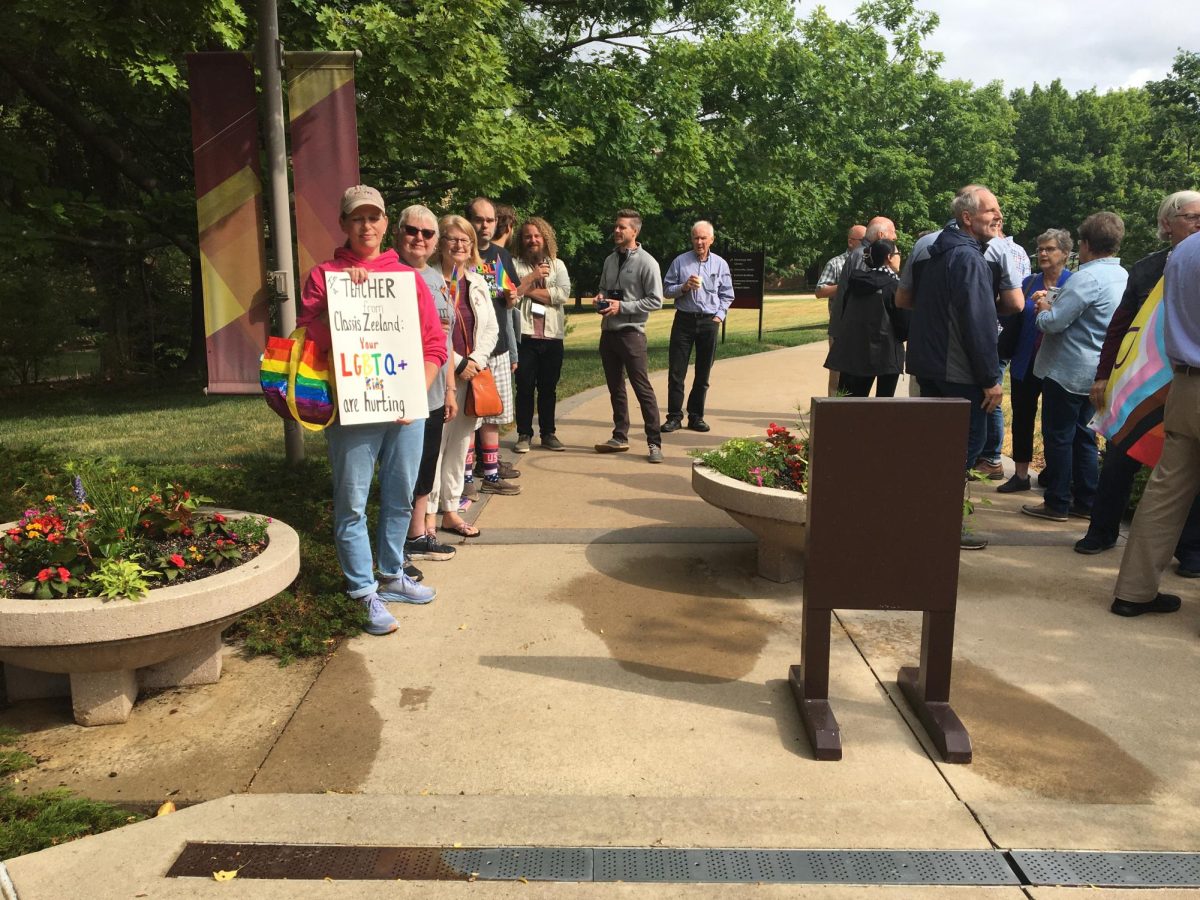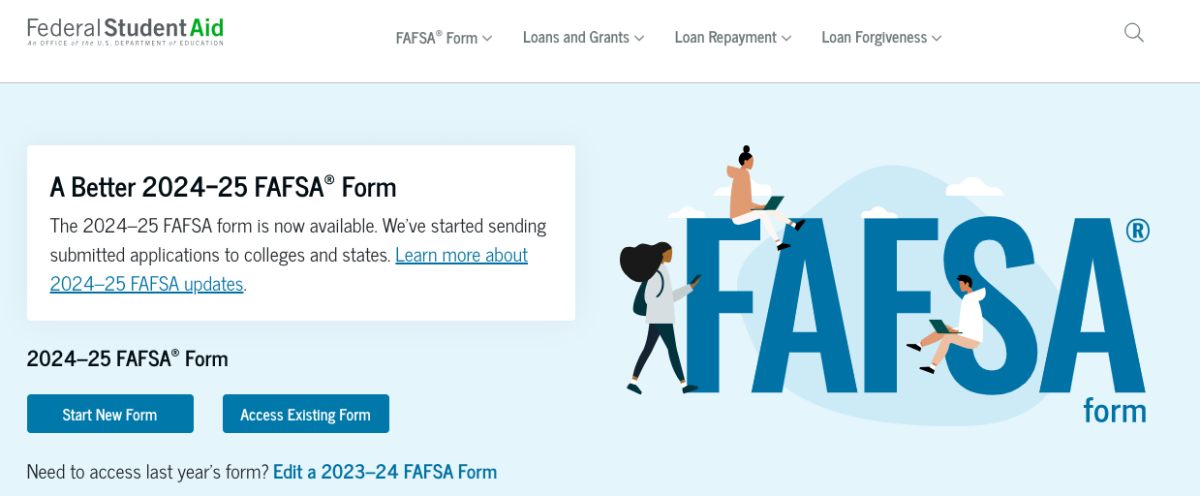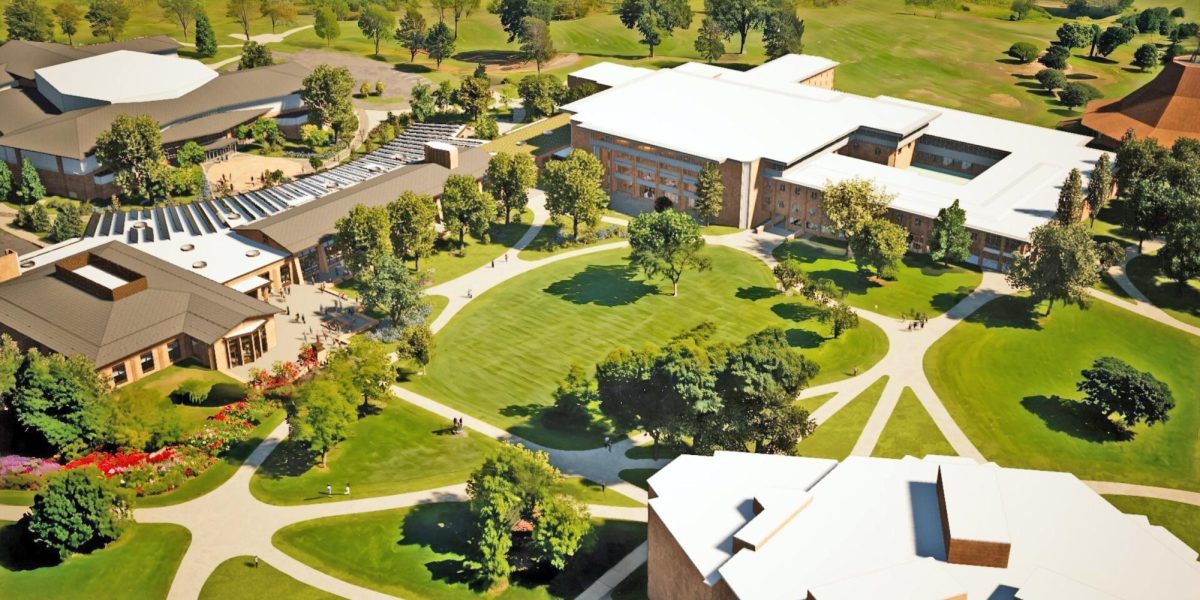This June, Christian Reformed Church of North America (CRCNA) — Calvin’s parent denomination — deferred ruling on academic exemptions for Calvin faculty who disagree with the official CRC stance on human sexuality.
At Synod 2022, delegates voted to affirm that the position that homosexual sex is sin has confessional status. Confessional status means that all people who hold office in the church are expected to uphold the position. Synod 2023 — which took place from June 9 and June 15 — was expected to address questions about how the denomination would respond to those — including some Calvin faculty and staff — who hold contradictory views.
Due to time constraints at Synod 2023, decisions regarding these questions have been deferred until Synod 2024.
Calvin and the Confessional-Difficulty Gravamen
Currently, both the CRCNA and Calvin University have confessional-difficulty gravamen processes for office bearers and faculty members — respectively — who disagree with an aspect of the denomination’s confessions. A confessional-difficulty gravamen “expresses personal difficulty with the confession but does not call for a revision,” according to the CRCNA’s “Church Order and Rules for Synodical Procedure.” If accepted, the gravamen allows the person to keep their position while they continue to discern the matter.
Church office bearers and faculty members report their gravamina to different bodies. Office bearers report their gravamina to their local church council, which may then pass the matter along to the classis or to synod. Calvin faculty report theirs to the Professional Status Committee (PSC), which is part of Calvin’s faculty governance system.
Following the 2022 synod decision, a number of Calvin faculty successfully filed confessional-difficulty gravamina concerning the denomination’s stance on LGBTQ+ relationships. In November 2022, Calvin’s board of trustees voted to retain these faculty.
Loren Haarsma, professor of physics, said that many faculty — including himself — who have signed a gravamen feel that doing so allows them to “continue to do scholarship and teaching in the way they would want to do it anyway, with the appropriate care that they would have done anyway.”
Not all faculty who disagree with the official denomination position have chosen to file. Linda Naranjo-Huebl, professor of English, said she and some other faculty have chosen not to file gravamen “because they don’t recognize synod’s authority to interpret the confessions the way that they did.”
Prior to Synod 2022, about 149 faculty and staff signed a 2020 letter voicing concerns about the Human Sexuality Report, a document laying out the denomination’s positions on human sexuality. The letter said that adoption of the report by the denomination “could undermine the academic freedom of faculty and our standing as a reputable academic institution.” According to Naranjo-Huebl, who helped draft the letter, the signers include faculty who “aren’t LGBT-affirming, but don’t believe it’s a confessional issue.”
Between Synod 2022 and Synod 2023, several of the CRCNA’s regional classes submitted overtures that called for changes to the confessional-difficulty gravamen process. Suggested changes included introducing a time of discipleship for those who filed, removing their eligibility as a synod delegate and requiring them to resolve their difficulties in a set frame.
“Some people see today’s issue as that, as an agree-to-disagree and stay together, and other people say, actually, no, this is the line in the sand,” said Doug Koopman, professor emeritus of political science.
Koopman, who is retired but teaches as an adjunct, arrived in 1995, while the denomination was in the middle of a debate about women in church office. Koopman said that the current tension over human sexuality reflects a “multi-generational tension between groups of Calvin professors and the denomination.”
According to Koopman, during past controversies, the university “successfully prevented those on the other side of the issue from seeking out individual faculty” who held a particular position. He said that it remains unknown whether the university will do the same on this issue.
“Folks want to know who signed these gravamen, and who is who, and that has never happened before,” said Koopman.
Recap of Synod 2023
Synod, which meets annually to make decisions regarding the denomination, is intended to be a deliberative rather than a representative body, according to Zachary King, general secretary of the CRCNA. For the first few days of synod, smaller groups of delegates discuss overtures submitted throughout the year by classes, churches and individuals. Then, they report their recommendations to the entire synod, where it will be discussed further, potentially revised, and then voted on.
“Participants come not to ‘represent’ a specific point of view on any topic, but instead are asked to listen to each other and prayerfully discern together how the Spirit is leading the church,” said King.
In their report to Synod 2023, the committee in charge of addressing overtures about church order (which includes confessional-difficulty gravamen) recommended that church office bearers who had filed a confessional-difficulty gravamen concerning human sexuality “resolve their difficulty by affirming the standards, resign, or be suspended from office by the end of 2023.”
The report also recommended that “synod allow Calvin University to continue their current course” for faculty who disagree with some aspect of the Covenant for Faculty.
However, these recommendations were never voted on. On June 15, synod began discussion of the report. After synod voted to cease discussion on a motion related to the report, at least three delegates walked out in protest. (Previously, another delegate walked out in protest of the denomination’s treatment of LGBTQ+ persons.)
These walkouts, along with the limited time, prompted synod leadership to defer overtures related to church order until Synod 2024. Recommendations from this year’s committee will be sent as a communication for next year’s committee to “consider as they deliberate,” according to King.
“While timing will be dependent upon when the advisory committee finishes their work, staff are recommending that materials deferred from 2023 be addressed as early as possible in the agenda for Synod 2024,” said King.
Immediate Impacts
Recent synod decisions may not impact all aspects of campus life equally. Calvin staff, unlike faculty, are not expected to sign confessional commitments, though the Employee Handbook prohibits sexual relations outside of marriage and defines marriage as “a covenantal union between a man and a woman.”
According to John Witte, dean of students, synod 2022 did not significantly impact guidelines for Student Life staff — including RAs — mentorship of students. Professional ethics generally “advise counselors not [to] provide direct advice, answers, or direction,” said Jodi VanWingerden, coordinator for student success and sexuality programming. This includes matters of sexuality.
“People need to sort those things out for themselves — and our role is to listen well, to ask good questions, to offer some ideas if needed,” said VanWingerden.
VanWingerden’s office, which falls under Student Life, also organizes events such as the Sexuality Series to encourage education and conversation on sexuality. According to VanWingerden, it’s important that these events include “an honest acknowledgement of where we’re at — both with regards to the denomination’s official position, and with regards to our community’s experience of the conversation.”
Long-term Effects
The long-term impact of synod remains unclear. According to Provost Noah Toly, the committee in charge of discussing the gravamen process was generally in agreement with their recommendations concerning Calvin.
“While we recognize that Synod 2023 did not bring closure to the matter in a plenary session, we take this as an endorsement of our current approach,” said Provost Noah Toly.
If the denomination does decide to take a stricter position, Naranjo-Huebl said she believes the university will be slow to kick out affirming faculty because “the talent they would lose would be irreparable.”
Decisions made by and regarding the denomination itself may also affect the Calvin community. In 2021, the Reformed Church of America (RCA) –– with which Calvin has close ties –– split after several more conservative congregations left to form the Alliance of Reformed Churches (ARC), which holds that marriage is between one man and one woman.
Paul VanderKlay, a long-time CRCNA pastor and Synod 2022 delegate, said he thinks it’s “going to be very difficult to avoid [a church split]” in the CRCNA, with both liberal and conservative classes and churches potentially leaving. Koopman said he also sees a church split as possible as progressive churches “leave the denomination or boldly state their position and wait to get pushed out.”
Additionally, individual faculty may decide to leave the denomination. Naranjo-Huebls said she has already left the CRCNA because she “wanted to go to a church where LGBTQ+ students are welcome.”
For some within the CRCNA, a church split isn’t an undesirable outcome. Tyler Wagenmaker, a CRCNA pastor who wrote about Synod 2023 for the Abide Project, said he hopes the denomination finds a way to “‘bless and release’” congregations who disagree with the denomination’s position on sexuality.
Such a split could have a significant effect on the Calvin community, according to Koopman, since many Calvin and faculty attend these churches.
“Theoretically, you can be in those congregations and work at Calvin, but practically, how is that going to work?” said Koopman.








Lord Cavendish • Sep 15, 2023 at 1:36 pm
There was a time when reason prevailed, and progress was being made in the Reformed churches, now a good portion of the reformed community has reverted to radical fundamentalism.
To wit, for those extremists who threaten schism every decade, “we will miss you very much.”
Kathryn Lee • Sep 13, 2023 at 10:42 am
Thank you for this article which reflects careful attention to details. It helps those of us outside the CRCNA to understand processes.